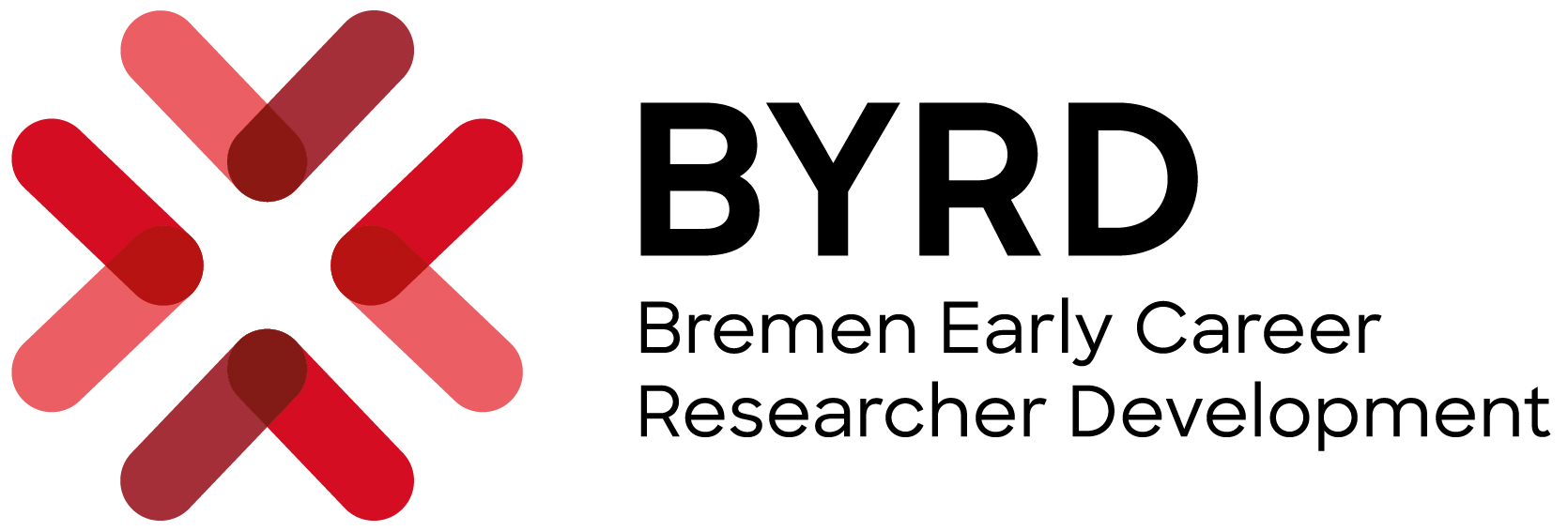Empowering Team Success: Crafting Effective Collaboration
Course 2025-12
Date: 31.03 + 01.04.2025
Time: 09:00 - 17:00 (1st day); 09:00 - 13:00 (2nd day)
(optional online Follow-Up Coaching: 10.06.2025)
Venue: SFG 2080
Trainer: Patricia Meyer, Lic.rer.publ., Lukas Bischof Hochschulberatung, Berlin

Working in Science brings many challenges on various levels: Researchers want to be merged effectively into a functioning team; processes and documentation have to be defined and organised for the limited timespan of a project; team members often change in research projects, newcomers need to be onboarded and integrated quickly into the team. All this with the aim of getting the research project successfully over the finishing line.
The workshop therefore aims to bridge the gap between aspects of team building (people) and the practical organisation of collaboration, including the digitalisation of collaboration (processes).
During the workshop, participants will learn and try helpful methods that they can use to effectively set up, organise and lead a research team. During the follow-up coaching session, the participants can then reflect on their experience when putting the methods into practice and can set their goals for the upcoming months.
The WORKSHOP will cover the following:
- A special kind of thing - what makes research projects so challenging?
- What is a team actually about? - The principle of theme-centred interaction (TCI) according to Ruth Cohen
The people:
- The „Me“: creating clarity and commitment through role definition
- The „We“: Growing together successfully as a team
- The team culture & the team charter
The ‘organisation’ / the project: processes, standards & rules
- What should we agree on? Standards, processes and rules for working together
- Ideas from the agile world: Distributing tasks with KANBAN
- Documentation based on the stakeholder analysis
- Making meetings effective and productive
- The communication plan: Who communicates when, where and with whom about which topic?
The ‘organisation’ / the project: the tool:
- What do we need to digitise all of this? Collection of ideas and development of a requirements profile for a tool for digital collaboration
FOLLOW-UP COACHING (online):
In the follow-up coaching, participants can reflect in a retrospective (start - stop - continue): What worked, what didn't? What comes next? This process is designed to be open and primarily based on input from the participants.
Learning Objectives:
- The participants will have learned methods and structures which will help organise their project team more effectively.
- They will have already tried these out in exercises based on the challenges in their team and will have understood which methods will serve them best.
- They will have put together their own personal ‘tool box’ that they can then try out in everyday life.
- They will also have a requirements profile for a digital tool, which can then serve as a basis for the selection of such a tool.
Target Group & Registration
This workshop is primarily aimed at (soon to be) junior research group leaders and other advanced postdocs in similar positions with leadership responsibilities.
To book your place in this workshop (course number 2025-12), please fill out this registration form.
Trainer profile
Patricia Meyer brings over 28 years of professional experience in various industries to the table. She is an experienced (and passionate!) project manager and - against the backdrop of her experience - has specialised in project management, team organisation / leadership, intercultural leadership, intercultural skills, time and self-management as well as supporting women on their career path.
She joined Lukas Bischof Hochschulberatung at the beginning of 2020 and now combines ‘the best of both worlds’: her practical experience from business with her experience in academia where she has supported researchers (and their projects) through workshops, coachings and project support.
Following her training as an editor, Patricia Meyer completed an interdisciplinary journalism degree programme at the Journalisten-Kolleg of Freie Universität Berlin. She holds the academic degree of Licentiata rerum publicarum (Lic. rer. publ.).

